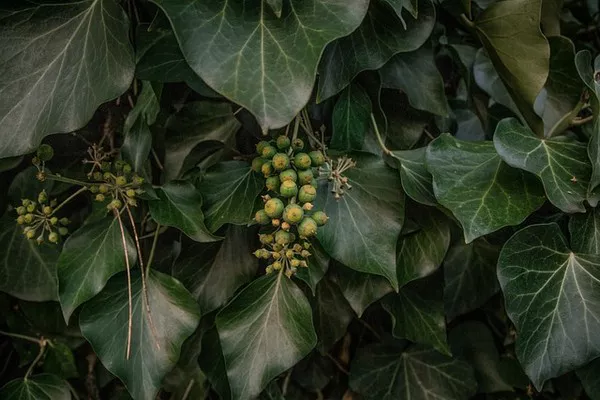Gardening can be a therapeutic and rewarding hobby, allowing you to connect with nature and cultivate beautiful plant life. However, the presence of slugs can turn this enjoyable pursuit into a frustrating battle. These slimy creatures can wreak havoc on your plants, leaving behind a trail of destruction. Fortunately, there are several effective strategies you can employ to protect your garden and stop slugs from eating your precious plants. In this article, we will explore various methods, from natural remedies to modern solutions, to help you maintain a healthy and thriving garden.
Understanding the Enemy: The Slug
Before delving into the strategies to combat slugs, it is essential to understand your adversary. Slugs are soft-bodied mollusks belonging to the gastropod class. They are primarily nocturnal, which means they are most active during the night and on cloudy, humid days. Slugs thrive in damp environments and prefer to feed on tender plant leaves and seedlings. Their voracious appetite can cause significant damage to a wide range of plant species, including vegetables, flowers, and ornamental plants.
Now, let’s explore the most effective methods to keep slugs at bay and safeguard your garden.
Maintain a Slug-Unfriendly Environment
Creating an environment that is less appealing to slugs is the first line of defense in protecting your plants. Here’s how:
a. Reduce Moisture: Slugs thrive in damp conditions. To discourage them, avoid overwatering your garden. Use soaker hoses or drip irrigation systems to deliver water directly to the base of plants, keeping the foliage dry.
b. Remove Debris: Slugs often hide in garden debris, such as fallen leaves, weeds, and old mulch. Regularly clean your garden, removing hiding spots for slugs.
c. Raise Beds: Elevated garden beds can deter slugs, as they are less likely to climb elevated surfaces. Consider installing raised beds to keep your plants out of their reach.
Natural Slug Deterrents
Nature provides us with several slug-repelling solutions that are safe for both plants and the environment. Here are a few options:
a. Copper Barriers: Copper tape or strips placed around the base of plants can create an electric charge when slugs come into contact with it, deterring them from crossing. Copper is an effective and eco-friendly solution.
b. Diatomaceous Earth: Diatomaceous earth is a natural substance made from fossilized algae. When sprinkled around plants, it acts as a barrier that dehydrates and deters slugs on contact. Be sure to reapply after rain.
c. Coffee Grounds: Recycling used coffee grounds as mulch around your plants can help deter slugs. The rough texture of the grounds can be uncomfortable for slugs, making them less likely to crawl over it.
d. Eggshells: Crushed eggshells scattered around your garden can create a rough surface that slugs find challenging to traverse. Additionally, eggshells provide essential nutrients to the soil as they break down.
Natural Predators
Introducing natural predators to your garden can be an effective biological control method to manage slug populations. Some animals and insects feed on slugs, helping to keep their numbers in check. Consider attracting the following natural predators:
a. Birds: Encourage bird activity in your garden by providing bird feeders and bird baths. Many bird species, such as thrushes, blackbirds, and ducks, enjoy snacking on slugs.
b. Ground Beetles: Ground beetles are voracious slug eaters. You can create habitats for them by adding rocks, logs, and mulch piles to your garden.
c. Toads and Frogs: These amphibians are excellent slug hunters. Make your garden more amphibian-friendly by providing water sources and shelter, such as overturned clay pots.
Slug Traps
Slug traps are a practical way to reduce slug populations without resorting to chemical pesticides. Here are two types of slug traps you can consider:
a. Beer Traps: Slugs are attracted to the smell of beer. Bury shallow containers (e.g., yogurt containers) in the soil, so the rims are level with the ground. Fill these containers with beer, and slugs will crawl in and drown.
b. Wooden Boards: Place wooden boards or planks in your garden, creating cool, damp hiding spots for slugs. Check under the boards regularly and remove any slugs you find.
Organic Slug Repellents
If natural remedies and traps alone aren’t sufficient, you can consider using organic slug repellents. These are non-toxic options that can deter slugs effectively:
a. Sluggo: Sluggo is a granular product containing iron phosphate. It is safe for plants, pets, and wildlife. When slugs consume Sluggo, it disrupts their digestive system, leading to their demise.
b. Neem Oil: Neem oil is a natural pesticide that can be sprayed on plant foliage to deter slugs and other garden pests. It also has fungicidal properties, which can help protect your plants further.
Hand-Picking Slugs
One of the most straightforward methods to control slug populations is hand-picking. Though it may seem labor-intensive, spending a few minutes each evening inspecting your garden and removing slugs can be highly effective. Wear gloves and dispose of slugs in a container of soapy water to prevent them from returning to your garden.
Conclusion
Dealing with slugs in your garden can be challenging, but it is not insurmountable. By implementing a combination of these strategies and maintaining a vigilant approach, you can protect your plants from slug damage while keeping your garden healthy and thriving. Whether you choose natural remedies, attract natural predators, or use organic repellents, the key is to create an environment that is less welcoming to slugs and to take proactive measures to reduce their population. With patience and persistence, you can enjoy a beautiful and slug-free garden.


